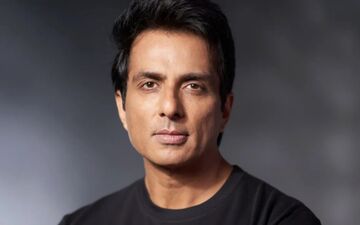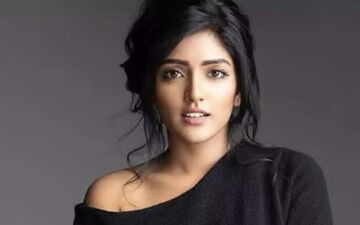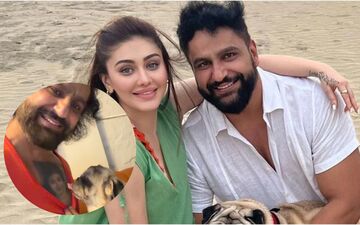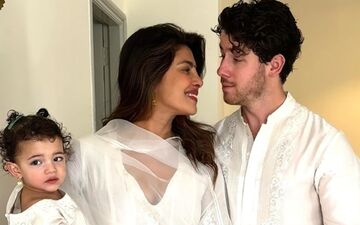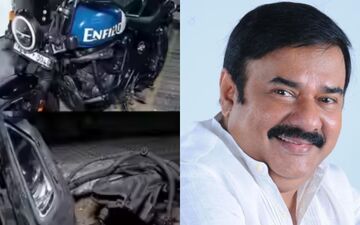Documentary Film 'Invisible Demons' Makes It To Cannes; Director Rahul Jain Says 'I Feel Blessed I Could Take It With Humility'-Exclusive
Spotboye.com speaks to director Rahul Jain about his documentary 'Invisible Demons', the impetus behind it, and climate change and the emergency that follows.
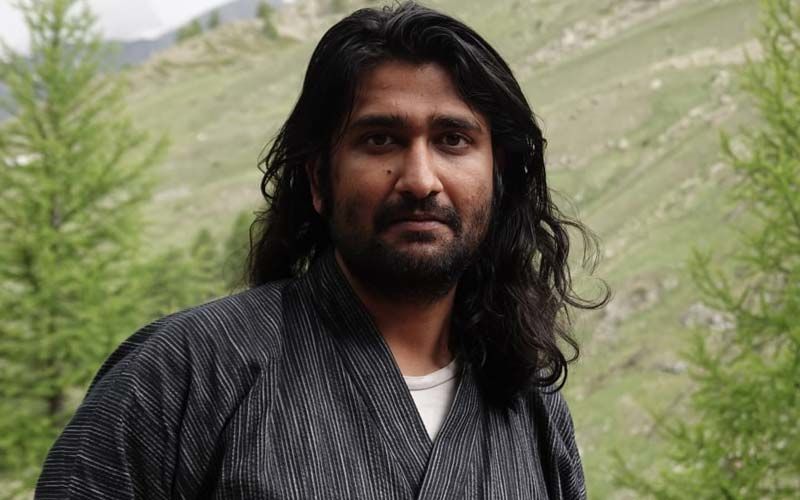
The consequences of the catastrophic air pollution in India's capital loom large in Rahul Jain’s documentary 'Invisible Demons', which screened at the Cannes Film Festival this week. The talented director's earlier work Machines, released in 2016, explored Dickensian conditions in a Gujarati textile factory. And Invisible Demons tells the story of Delhi's air pollution through his lens, more so through the eyes of the underprivileged, for whom the climate emergency is overwhelmingly terrifying.
Spotboye.com spoke to the director about his documentary 'Invisible Demons', the impetus behind it, and climate change and the emergency that follows.
1) A cliched question. Your first documentary premiered at the MAMI Film Festival 2017 where it won the Silver Gateway Award. Your second has made its way to the Cannes. How are you feeling? Has the overwhelming emotion sunk in yet?
A: Even like while the world is falling down around you like a line of dominoes, you don't really realise it when you're editing, and when you are editing for a year or so you actually need to go on your own spiritual lockdown so and then at that point you have to kind of avoid and ignore everything you can, to focus, this process is called going into editing hole.
When the pandemic struck, we had just started editing, it was perfect for editing, it was great. I was lost to family members and friends and acquaintances and colleagues. So, in one way the pandemic didn't touch me and then I saw that so many filmmakers who work so hard on the work fronts, they stopped, they just froze. So, the film was finished five to six months ago. I was just thinking -- What do I do next? What do I do next? Where do I go? Where do I find myself?
And of course, I couldn’t find anything that I could work on, I had some projects I was working on for a while but I didn't pretty much like to make up my mind because everything is closed and I'm really an outdoors person. I don't really get particularly inspired from reading something or somebody else’s ideas, I need to go out and see the world to really be able to say something about it. So I've just been a bit down in the dumps a bit and I realised at some point the best way to deal with it is to just be around and in nature. There's just no other way or possibility. I have a partner I'm with in Germany and we were living in Berlin together and it's a beautiful city. I really like it when it's not a lockdown but right now in the lock down it is miserable.
I'd heard that the producers had applied for Cannes and I didn't know what to think, I was a bit unsure, but my producer kept telling me you don't understand, what you have made is really powerful and really strong but it's a good thing you don't understand it. They were sure, and very convinced of the work and they really recruited really good people and really powerful people at the top of their game. They're really at the peak of their career, so I just kept crossing my fingers and thinking, oh, I hope that they're not like a traditional producer who are only looking for good in their films, even if they know they're not good (laughs). Anyway, I really couldn’t believe it, but you know when you pretend to be really cool and light headed about it for a while and as soon as the date gets closer you start to get nervous, conscious and worried about it. It is very nerve racking.
In the ideal world and I hope it's like that in reality, it shouldn’t make a difference who you really are as a person and at that point when I was super nervous I couldn’t accept this really wide line I was just like ohh god please just this one time give me a good news please and I was alone in the mountains but at some point I just stopped caring and I started smelling the trees, making journal on the trees around to distract myself and started playing with animals every day. I was just a guy trying to find farmers around and asking them can I help you with stable please as I was all nervous and needed something to do and one of these days my colleague called and she was like did you hear the news and I was milking a cow and had headphones in my ears and she was like we got in, we got in. and you know by that time, when this happened, I thought like if I got this news six months before then I would be screaming but by the time I learnt to calm myself down and try at least to not care. At some point, it stopped affecting me and this is what makes me feel so blessed. I feel blessed not because I got in but I feel blessed that I got in and I could take it with humility.
2) What has been your biggest motivation or inspiration behind making a documentary on Delhi's catastrophic air pollution? What was the impetus?
A: Even before I wanted to be a filmmaker, I was concerned about the natural world and the biosphere. And I remember answering as a younger teenager -- What do you want to do when you grow up? I used to say things on the line that I want to do something related to the environment. And I studied environmental and Areological engineering in my first year in College, but I failed It miserably. I couldn’t really deal with the numbers. So I guess I maybe subconsciously was already trying to do something about this as a younger person.
Yes, even for my thesis in aesthetics in politics, because after film school, I wrote about a subject called GI anthroprocene and the cinema. And GI procene a Greek word, but it's a new word, which means the earth and the time of humans and I was trying to find a way to depict the relationships that human beings have with the natural world and the loss of that relationship. And I was trying to understand that in the last 100 years of the cinema history, how have our species, part of our species, worked or found a way to represent and show the relationship that we have with the world and the loss of that relationship? Even like most anthropology today, I learned it's not about how the world is right now, but what the world used to be and what have we lost?
I have been deeply concerned with this my whole life, but I didn't know what to do with those concerns. One is if you like something, and then the other thing is that you want to do something about it, you actually have something to say. And after finishing my first film, but before it's premier, of course, my family was like -- what are you doing sitting at home? You're 25 years old, nobody your age just sits at home and doesn't do anything. You just make one movie, and it hasn't even premiered yet and look at you relaxing. So I was feeling very worthless, thanks to my loving family and I tried to run away from home and I went to the mountains for a month, all alone and walking every day and I loved it. I loved it and I was rekindling my love affair with all the things I thought I had lost.
One other thing I would like to add in this answer is that as a student in California, all of my friends, and I was blessed enough to have these friends who were locals and they really introduced me to the local diversity of the Landscapes which California has in like a hundred kilometres radius. You have oceans, forests, mountains, desert, everything combined. So going there made me feel like, oh whoa, what is this? And it definitely made me a more open person to Nature. And at the same time my family, my doctors, and their families, my friends, and all the people I knew, all my acquaintances, everybody we were speaking to in all our conversations, (this is in 2016) were just talking nonstop about the pollution.
It was a big sensation in the media because if you know ranking statistics and so on every day's everybody's you know, like how the weather talk was about how ticklish rings are.
Around that time I went to Bhutan and on my journey back from Himalayan Mountain Range, I just saw Delhi and its surrounding region, just enveloped and shrouded in a thick white mist. And then I landed at the airport, I immediately fell sick, I felt like a genie was choking me and it was, it was really unbearable. I know it's like such a naïve perspective to talk about your great life -- landing from Bhutan in an airplane and then just complaining about ohhh life is so bad here but I was aware that while I was sick and, in the hospital, my next thought was oh my God. I actually have all these options with me but I know every day I see the city, the people not really having an option and this really moved me a lot. Its this thought that wait, I can leave but most people can’t leave, and it was the same thought that came from Machines. Also, when I was making Machines, one of my professors told me Rahul -- listen, the world will question you who are you to make the statement? You're this rich family boy going through a really poor factory and everybody will impose this Gautam Budha narrative on you, oh, Poor rich boy who is watching suffering and he's gone sad. But don't feel burdened by the weight of these responsibilities. You just have to respond to the empathy that's coming out of you and well, it does not matter where you're from, it matters, what you do with it and what you're feeling. And of course, he was right. I got a lot of questions about this, like, have you ever worked for a day in your life in a factory and the fact that you only see. Do you truly understand how these people feel? What right do you have to say about this? And the only right was that I just feel something and I'm trying to say something about how I feel.
And I thought that if I am contradicting or stepping on your toes by just expressing how I feel. Then please forgive me. But I have no other way to deal with how I feel. This is what I can do with what I know. And you know, once you kind of stop caring, these conversations will be a lot of noise around you. and then the only question remaining is what can I do? But where do I fit in the picture? What can I do? And that feeling of what can I do? How can I be of service?
3) The festival site describes the environmental film as a shocking documentary about pollution in New Delhi, India. Why Delhi of all places? What made it the perfect setting for your documentary?
A: You know, when you're young, I don't mean like young like me right now because I still feel that people think I am still young but 10 years ago when I was getting this, it's not a delusion of Gandhi or something, I would stay, but it is just trying to find purpose. And of course, like my producers have been telling me whenever I complained about my salary they've been telling me listen, if you want more money go work for your father, don't do this. So money is not like the purpose here in a way. The purpose here has to be derived from something deeper and I think that purpose is here, I don’t know but it could be I guess wanting to be liked by people in a very basic and conscious way. I doubt it, I hope it's not that, but it could be wanting to use the privilege that I have. I don't know how else to put it, wanting to be the hands and the legs, and the eyes for the victims with and trying to see suffering around you, trying to use your spirit to go to find a way to express that suffering because I don't know if films can explicitly change anything. The only thing a film can change is the way you think and it won't even change that it will just affect it for a few minutes and then hopefully you carry that application with you for a day, two, week or months and it just sits with you. That's the most I would say any work at all can do.
4) Discussions around climate change and its impacts on people have gained urgency in recent years. What's your take on that? How do you see India in this fight against global warming and climate change?
A: I have been affected by this even today. The day I landed from Bhutan, I don’t want to sound like a total maniac but the threat there became existential. When I saw my paediatrician in Delhi, the guy who was there when I was born and is still my main doctor, he was crying the day when I went to meet him and since I've known him, since he's known me, since I was born, we have a close relationship and he kind of was just like holding his head in disbelief like that how can my wife gets so sick and he was inconsolable and I told him you're a doctor. Why don't you take care of her? And he was like how do you want me to take care of her? It's everywhere. What do you want me to do? Like wearing a sterilised environment? I just kind of put her in a kind of a glass museum of glass, what do you really want me to do?
This frustration from somebody who I thought knew everything about the human body and could do everything it would take at least to save the closest person to you in the world. If that smartest person I know in Delhi couldn’t not save the person closest to them, that's when you know that things are bad. And it was this, real frustration like that “kare bhi toh kya kare” and of course the next thing is, go to the mountains. Go to the Himalayas, it is just a one-hour flight away.
The thing about all of this is that, every time you turn on an AC to cool yourself, you'll be warming the world outside of you. So it's like a win and lose Situation. You win personally but you lose collectively. This famous saying GO TO THE HIMALAYAS, Yeah, you go to the Himalayas from Delhi, either by a plane train or car, you might get happier stuff for a while. But if you're anybody with any decent ounce of sensitivity about the world, you must also know that you're ruining the world around you.
You know in Delhi there are these billboards cajoling you to buy your dream palace, and you see them, while you're stuck in a traffic jam. There's a shot of exactly this in the film, which is like, promising people, a sterilised palace of peace while you're stuck in the extremely foggy and smoggy morning in winter time. It's so sickening. It's so like -- wait, what? I mean I don't know how many people think of this but for me, since I was relatively young, this felt like a finger in my eye. It's like saying we're going to find you and I don't know who the ‘we’ is here, but we're going to find a way to ruin all of your lives and then we will offer you a solution that you can buy to get out of this. Well, I don't know how to put it. I don't know if it's correct but I'm saying it felt like that to me.
Image source: PR
Image source: PR
